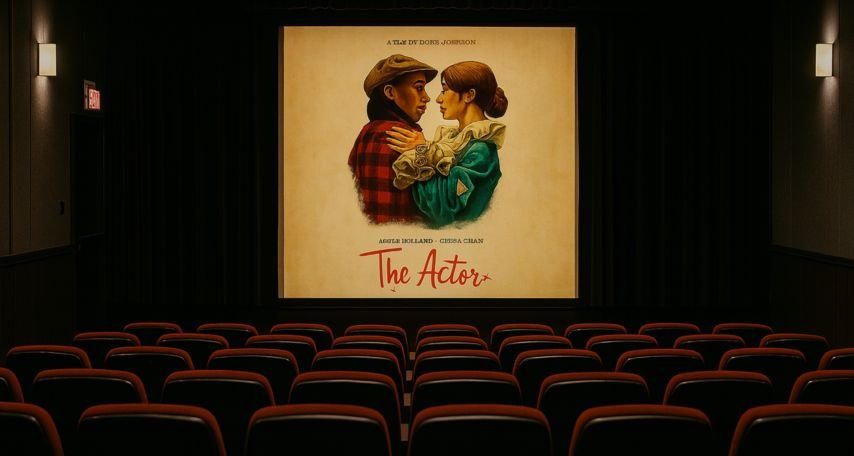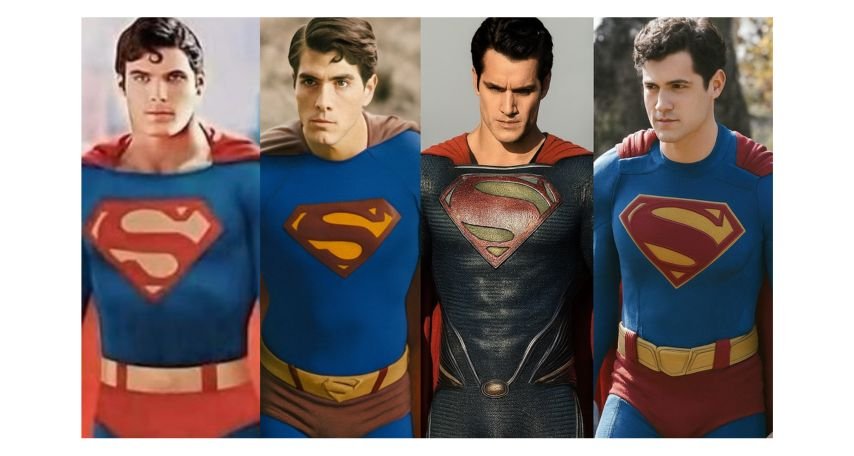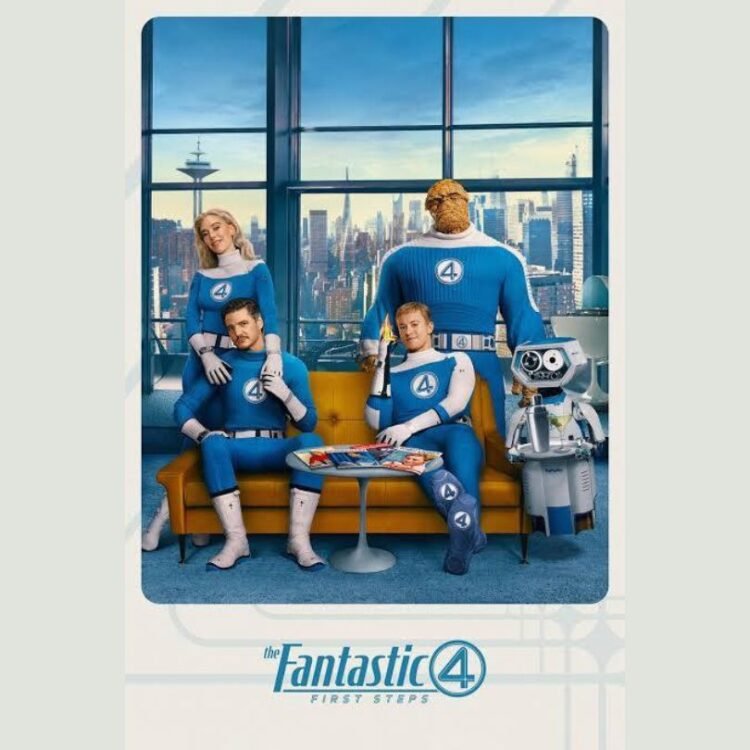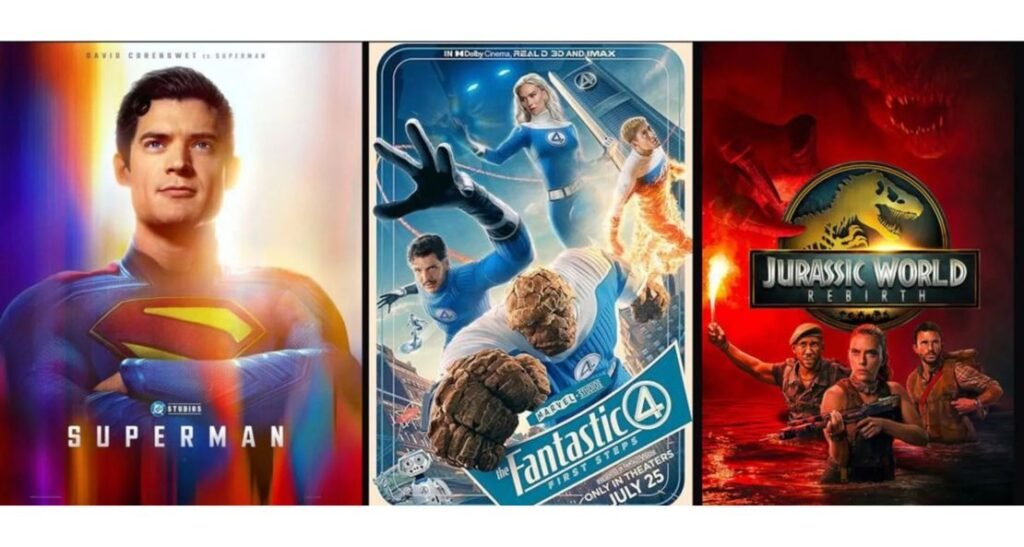The lights dim at the AMC Burbank 16. Again. A familiar orchestral swell cues the Warner Bros. logo. Superman: Legacy begins.
It’s yet another retelling of an origin story once considered iconic, now algorithmic.
Meanwhile, The Fantastic Four: First Steps clocks a $118 million opening weekend in over 4,000 theatres, despite being the third reboot of the same IP.
Just a few blocks away, The Actor, a stripped-down original drama screens to a room one-third full. No TikTok breakdowns. No post-credit theorising.

This is what Hollywood looks like in 2025: sequels to remakes of prequels. And what’s more revealing than the output is the coverage.
Critics aren’t just writing reviews anymore. They’re parsing brand strategy.

The Access Trap
Behind the scenes, studio embargoes and junket quotas dictate coverage rhythms.
Disney routinely grants early screenings only to outlets guaranteeing three pieces of franchise content per film – a review, an interview, and either a lore explainer or set visit.
Meanwhile, films like The Actor get one 45-minute press screening the Tuesday before release.
Hollywood Reboot Culture Explained
Why are remakes so popular? Because they’re safe. According to Statista, the North American box office earned $8.56 billion in 2024, and the top 10 grossers were almost entirely franchise films.
Disney, with a 16 percent market share, and the “Big Five” controlling over 67 percent combined, haven’t just learned how to package nostalgia. They’ve made it their primary export.
Compare that to The Actor or Diciannove—films with respectable festival runs, minimal marketing, and limited theatrical windows.
They exist, but the press cycle ignores them unless they pick up an award or become a tweetable surprise.
The Global Exception
While American studios chase IP, international markets tell a different story.
Godzilla Minus One (2023) became Japan’s highest-grossing live-action film by reinventing rather than recycling.
Poor Things (2023) proved original visions could outgross Marvel films in key European territories.
Yet U.S. distributors still market these as “exceptions” rather than blueprints.
Take the weekend of July 25th. Fantastic Four opened to 87 percent critic score and 93 percent audience on Rotten Tomatoes.
Superman still held strong with $289 million domestic total after its third weekend.
These numbers alone justify why they dominate reviews. But it’s not just audience size. It’s infrastructure.
Review quotas, SEO algorithms, and YouTube essay factories all incentivise coverage of the familiar. It’s a loop.
The more a film connects to an IP, the more angles it spawns: theory videos, “explained” breakdowns, lore timelines.
When a reboot drops, the cultural machine doesn’t just notice. It mobilises.
Remakes vs Originals Reviews: Uneven Weight Classes
This skew isn’t just anecdotal. Variety data cited by top critic editors shows franchise films now receive two and a half times more reviews than comparable originals.
Even bombs like The Marvels (2023) generated over 800 write-ups more than Past Lives and Aftersun combined.
And when reviews do land, they’re often shaped like corporate audits.
“Pedro Pascal’s Reed Richards finally delivers on the promise wasted in 2005 and 2015…”
“This version course-corrects the failures of Quantumania and repositions the MCU for Secret Wars…”
There’s a meta-commentary happening, not on the art, but on the brand.
Meanwhile, a film like Civil War (2024) breaks $100 million and generates thinkpieces only after proving itself at the box office.
The Wild Robot outperformed Kraven the Hunter with a third of the coverage, but you’d be forgiven for missing it.
Why Do Reboots Get More Attention?

Because the machine is built for them.
Studios offer preview access, merch tie-ins, and interview incentives to major publications if the piece is on their IP slate.
Streaming-era vertical integration also means coverage of a Disney film can support a Disney+ campaign, a Marvel Legends toy line, and a Hulu docu-spin-off.
Critics, caught in a shrinking industry with fewer salaried roles, follow the incentives.
A24 dramas don’t come with access, traffic, or cross-platform juice.
A new Spider-Man reboot? That’s three pieces before opening night.
Audience expectations don’t help. Reddit and Letterboxd threads often frame reviews not as artistic evaluation, but as loyalty tests:
“Finally a Fantastic Four that understands the characters.”
“Better than the Snyder version, worse than Cavill’s debut.”
“Can we talk about the suit? MCU nailed it this time.”
The bar isn’t set by originality. It’s set by franchise course-correction.
Outliers That Break the Loop
But it’s not all lockstep obedience to the algorithm.
Cannes banned franchise entries in 2025. Sundance sold its biggest deal to The Actor, not a $150 million prequel.
The Atlantic runs weekly “Anti-Franchise Friday” columns, while some Substack critics have simply stopped reviewing MCU and DCU titles altogether.
Even the box office shows glimmers of fatigue. While Lilo & Stitch and A Minecraft Movie crossed $400 million globally, Superman’s international drop-off and Jurassic World: Rebirth’s 45 percent second-week dip hint at softening ROI curves.
And for all the noise, audiences still show up when an original strikes a chord.
Look no further than Civil War or the sleeper success of Folktales (77 percent on Rotten Tomatoes, modest rollout, cultish following).
Do Critics Favour Remakes or Do They Just Surrender to Them?
The question isn’t whether remakes get better scores. They don’t always. It’s whether they get more chances.
But even as alternatives emerge, the core dilemma remains: how to cover an industry that’s stopped talking about movies as movies.
Studios spend millions reshooting, rehiring, recasting, and rebranding, not because they care about critics, but because critics are part of the echo chamber.
That echo multiplies when writers frame coverage as cultural arbitration.
“Does Legacy fix the DCEU?” is not the same question as “Is Legacy a good movie?” But only one of those drives traffic.
If Familiarity Sells, Why Do Some Reboots Fail While Others Feel Fresh?
Maybe the problem isn’t the remake. Maybe it’s the expectation that a remake must either redeem the past or expand the lore. It’s a lose-lose. Either it’s too faithful, or it strays too far.
But once in a while, something slips through like The Batman (2022) or Dune (2021) that reimagines instead of replays. That remembers film isn’t just IP with new lighting. It’s vision, authorship, and risk.
So if The Fantastic Four breaks records and The Actor fades into VOD purgatory, the issue isn’t that one is better. It’s that one was built for the conversation.
Until the industry stops mistaking discourse for merit, the remake machine will keep spinning. And the critics will keep oiling the gears.
The question now is: Will we ever get tired of the echo?


